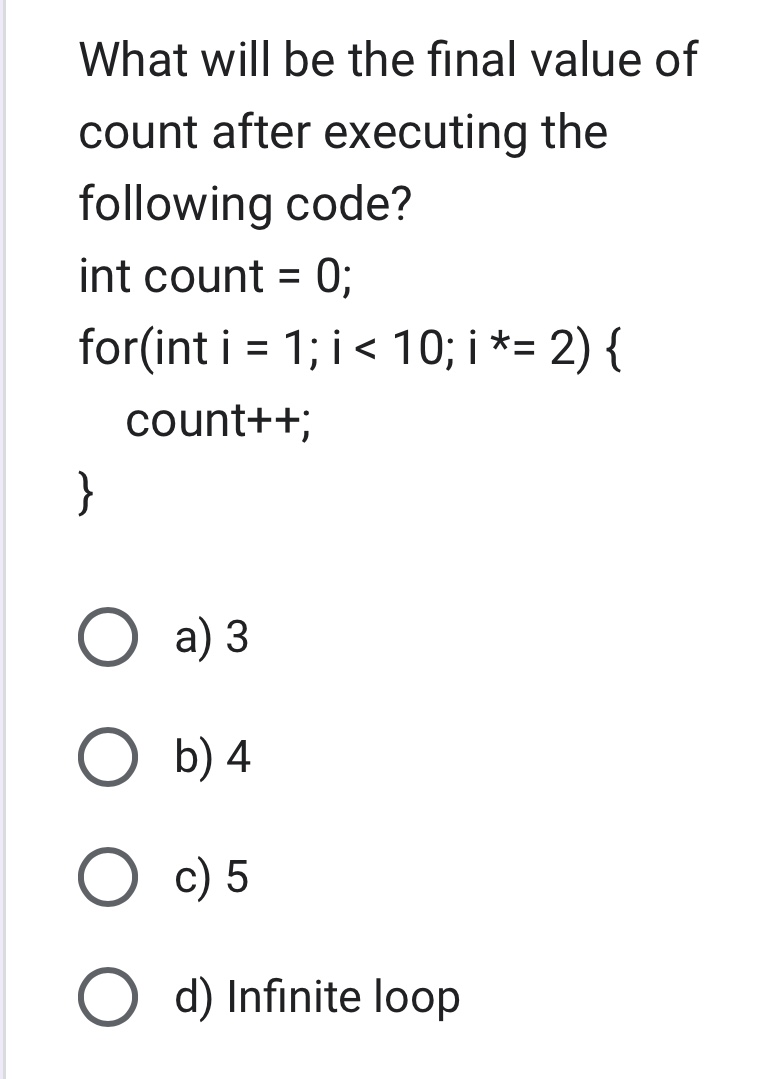What will be the final value of count after executing the following code? int count = 0; for(int i = 1; i < 10; i *= 2) { count++; }

Understand the Problem
The question is asking what the final value of the variable 'count' will be after executing a specified piece of code. The code involves a loop that increments 'count' while manipulating the iteration variable 'i'. The high-level approach is to analyze the loop's iterations and determine how many times 'count' is incremented before 'i' no longer meets the loop condition.
Answer
The final value of `count` is 4.
Answer for screen readers
The final value of count is 4.
Steps to Solve
- Initialization of Variables
The variable count is initialized to 0. The loop variable i is initialized to 1.
- First Iteration of the Loop
- Check the condition: $i < 10$, which is $1 < 10$ (true).
- Increment
count: $count = count + 1 = 0 + 1 = 1$. - Update
i: $i = i \times 2 = 1 \times 2 = 2$.
- Second Iteration of the Loop
- Check the condition: $i < 10$, which is $2 < 10$ (true).
- Increment
count: $count = count + 1 = 1 + 1 = 2$. - Update `i$: $i = i \times 2 = 2 \times 2 = 4$.
- Third Iteration of the Loop
- Check the condition: $i < 10$, which is $4 < 10$ (true).
- Increment `count$: $count = count + 1 = 2 + 1 = 3$.
- Update `i$: $i = i \times 2 = 4 \times 2 = 8$.
- Fourth Iteration of the Loop
- Check the condition: $i < 10$, which is $8 < 10$ (true).
- Increment `count$: $count = count + 1 = 3 + 1 = 4$.
- Update `i$: $i = i \times 2 = 8 \times 2 = 16$.
- Fifth Iteration of the Loop
- Check the condition: $i < 10$, which is $16 < 10$ (false).
- The loop ends as the condition is no longer satisfied.
The final value of count is 4.
More Information
The loop increments i by multiplying it by 2, starting from 1, and continues as long as i is less than 10. This process illustrates how exponential growth affects the number of loop iterations.
Tips
-
Incorrectly assuming the loop runs indefinitely: The loop condition prevents this, as
igrows rapidly and eventually exceeds 10. -
Miscounting the increments: It's crucial to accurately track each iteration when updating
count.
AI-generated content may contain errors. Please verify critical information